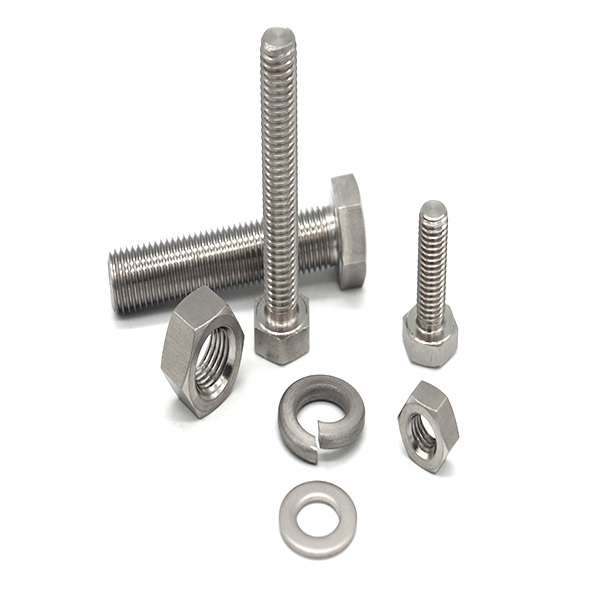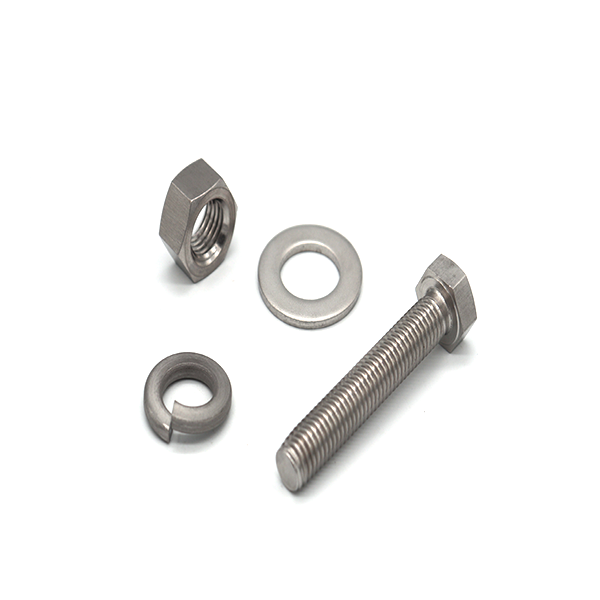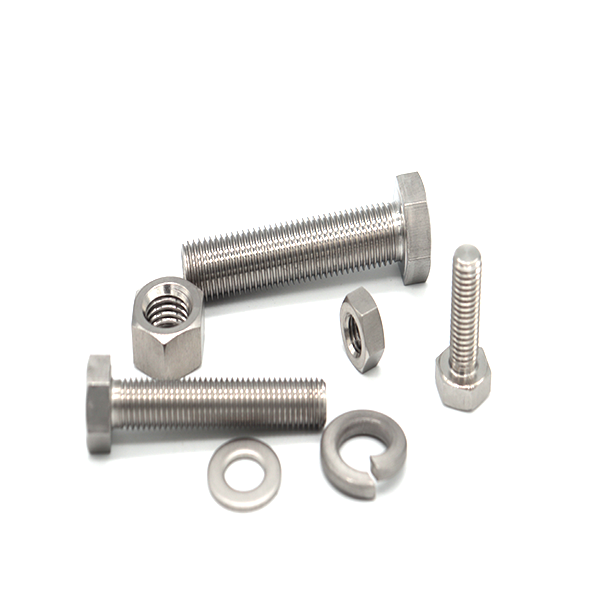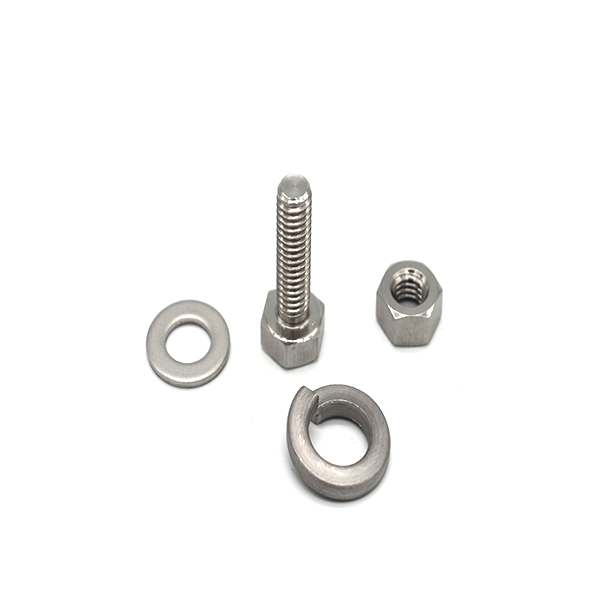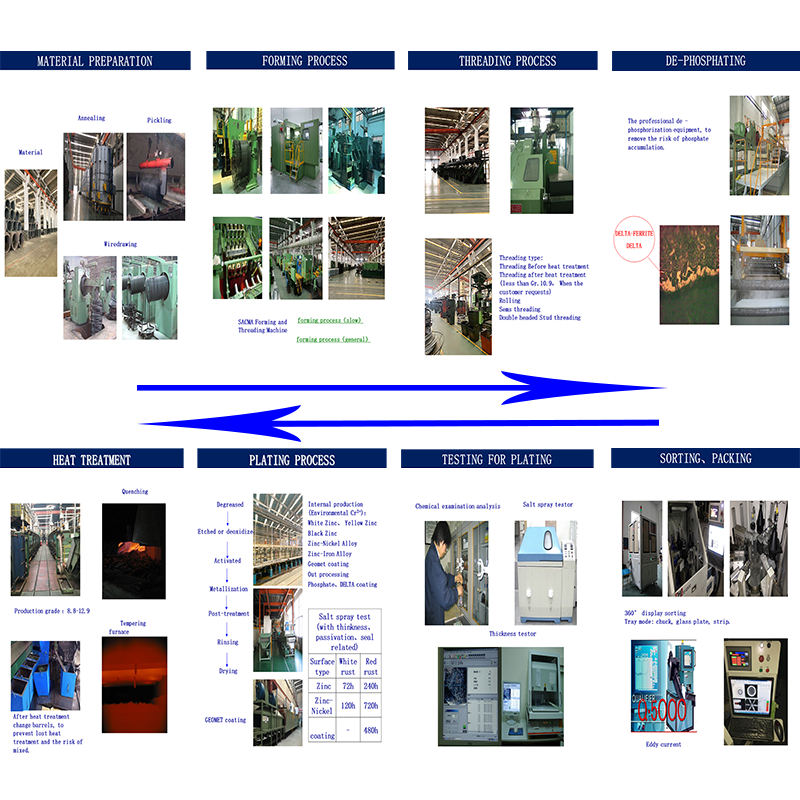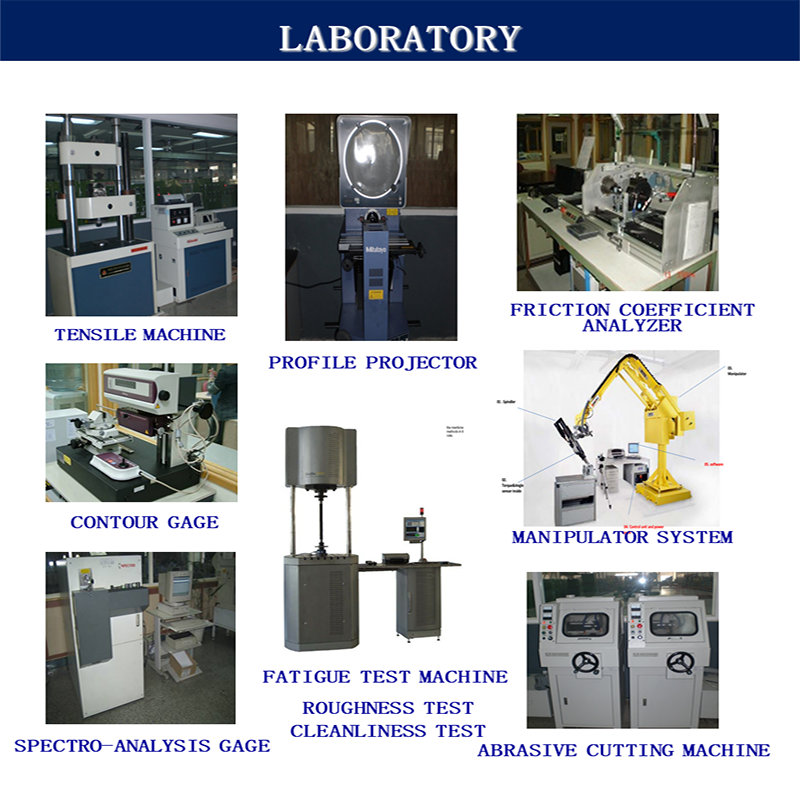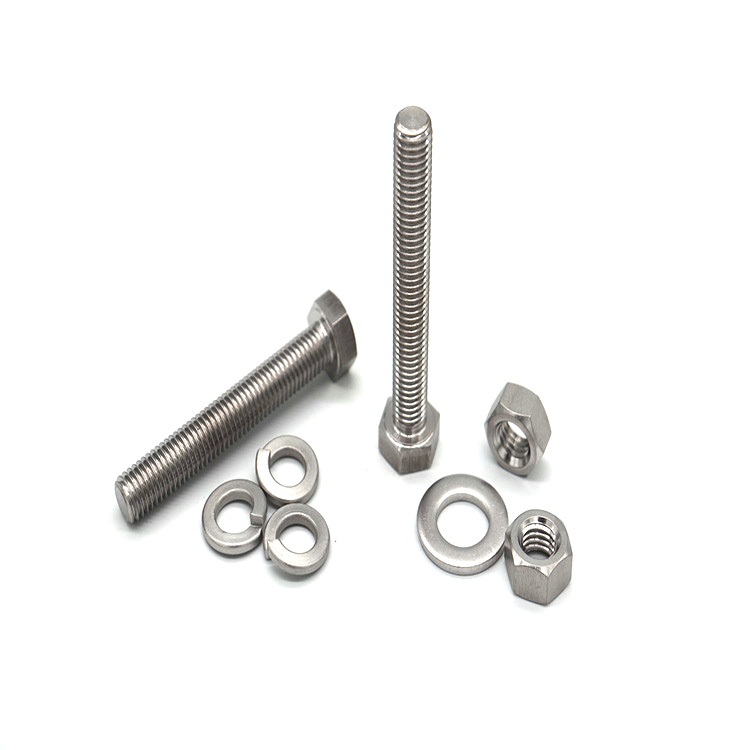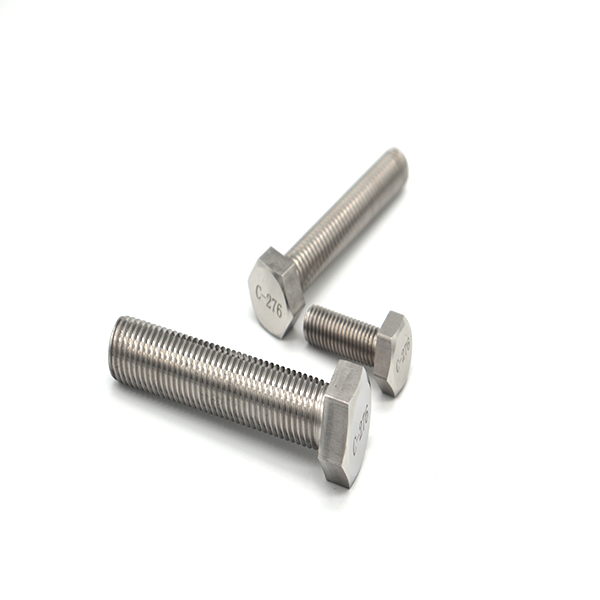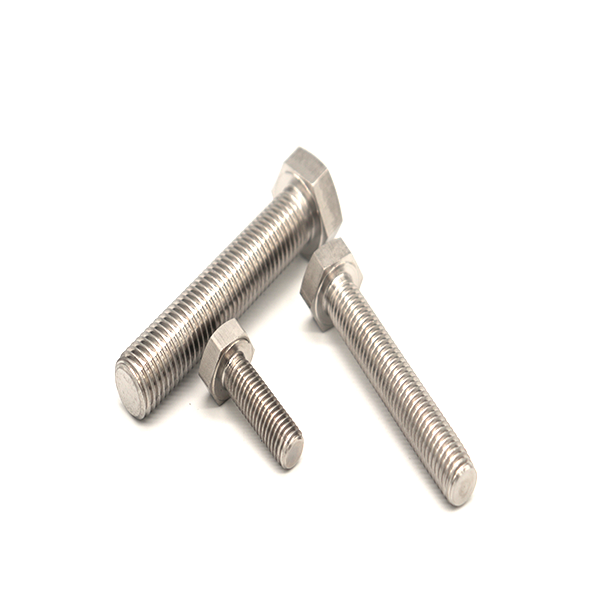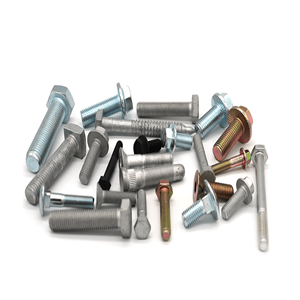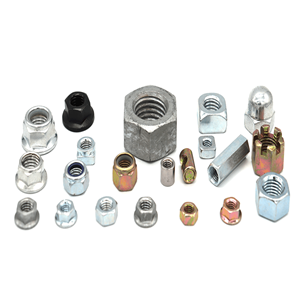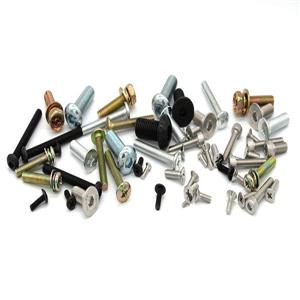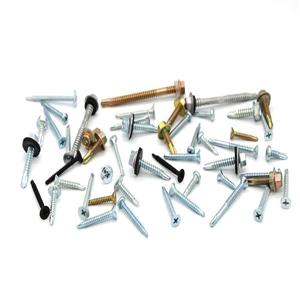Hastelloy Fastener

- STARWDH
- China
- 5-35 DAYS
- 1000 TONS
Hastelloy alloy fastener has excellent resistance to a wide variety of chemical process environments, including strong oxidizers such as ferric and cupric chlorides, hot contaminated media (organic and inorganic), chlorine, formic and acetic acids, acetic anhydride, and seawater and brine solutions. It is often used in flue gas desulfurization systems because of its excellent resistance to sulfur compounds and chloride ions encountered in most scrubbers. Hastelloy alloy fastener has excellent resistance to pitting and to stress-corrosion cracking. It is also one of the few materials that with stands the corrosive effects of wet chlorine gas, hypochlorite, and chlorine dioxide. Hastelloy can be fabricated by a variety of Methods. Hastelloy alloy fastener can be forged, hot-upset, and impact extruded. Although the alloy tends to work-harden, it can also be successfully deep-drawn, spun, press formed or punched. Since it is a strong material with corrosion resistances, it has been used in nuclear and chemical reactors and also in valves and pipes in the chemical industries. The most common Hastelloy used in fasteners is C276, B, C-4, G, C-2000, X and C22.
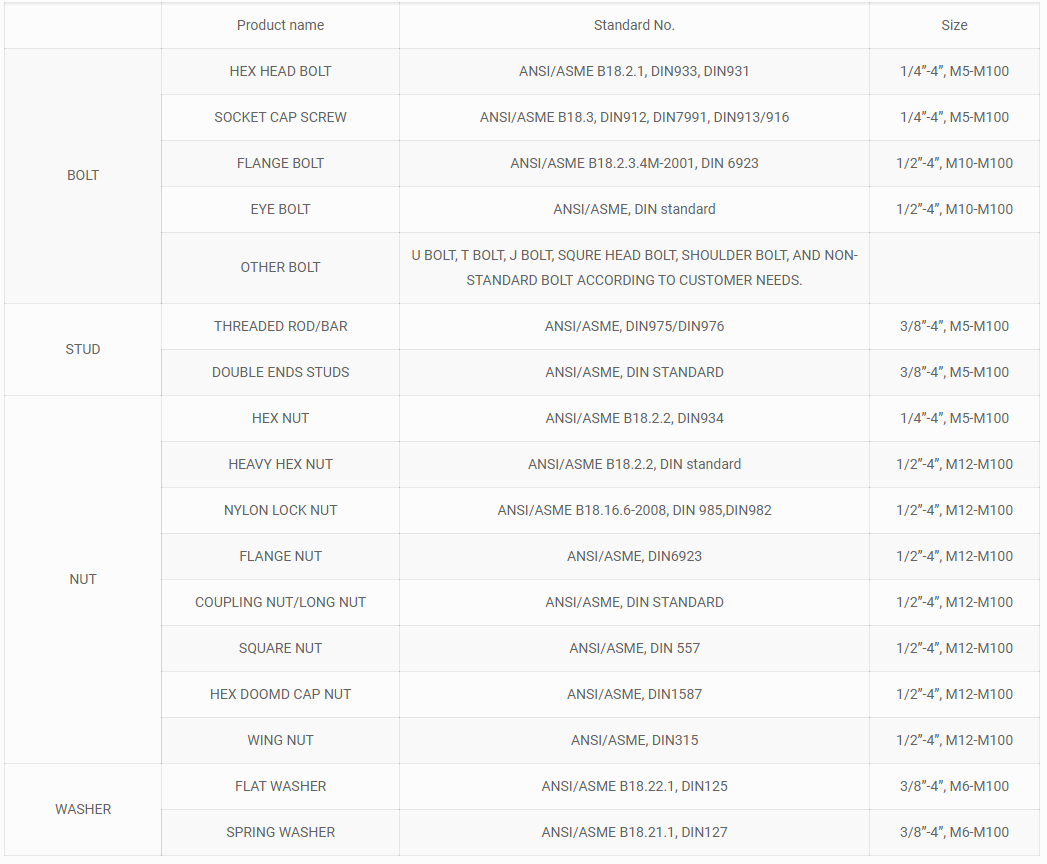
Common Hastelloy Fasteners Grades
HASTELLOY C276 (2.4819) Fasteners
Hastelloy C276 alloy, UNS N10276, 2.4819, is the most widely used and versatile corrosion resistant nickel alloy. Hastelloy fasteners offer very good resistance to strong reducing and moderately oxidizing corrosive acids, as well excellent stress corrosion cracking resistance and resistance to localized attack. Outstanding corrosion resistance to various concentrated, hot acids and reducing environments, C276 fasteners are readily used in hot sulfuric and hydrochloric acid applications. Hastelloy's resistance to sulfuric acid makes it a common choice for protection from hydrogen sulfide (H2S), more commonly known as sour gas.In addition, Hastelloy C276 is one of the few grades resistant to wet chloride gas and chlorine dioxide. The Hastelloy C276 grade also offers excellent mechanical properties at elevated temperatures up to 1500°F / 815°C, making it ideal for hot corrosive environments. Because of these properties, Hastelloy C276 fasteners have resistance to a wide range of acids, chlorides, and strong halides which is why they are often utilized in the chemical processing and the oil & gas industries. The only factor that is critical to point out when dealing with very strong oxidizing environments like nitric acid is that Hastelloy C276 fasteners can be attacked as it has a low chromium content compared to other grades like Hastelloy C22.
HASTELLOY B2 (2.4617) Fastners
Hastelloy B2 alloy, UNS N10665, offers excellent resistance to hydrochloric acid in all temperatures and concentrations, yet has poor corrosion resistance to oxidizing chemicals and in the presence of ferric or cupric salts. In addition, Hastelloy B2 has excellent resistance to pitting, stress corrosion cracking, and to knife-line and heat-affected zone attack. However B2 has little chromium, and it should NOT be used with oxidizing media in the presence of salts. Like other Hastelloy alloys, B2 fasteners can be used in the as-welded condition because they resist the formation of grain-boundary carbide precipitates in the weld heat-affected zone. It is recommended that B2 fasteners not be utilized between 1000° F and 1600° F because of a reduction in the ductility.
HASTELLOY B3 (2.4600) Fasteners
Hastelloy B3 alloy, UNS N10675, is specifically designed to deal with very aggressive hydrochloric acid (HCl), hyrdrobromic acid (HBr) and sulfuric acids (H2SO4) as well as acetic, formic and phosphoric acids. Hastelloy B3 fasteners deliver the same excellent resistance to hydrochloric acid and other strongly reducing chemicals as other B-alloys (including B2) but with significantly enhanced thermal stability and improved ease of fabrication. However B3 has little chromium, and it should NOT be used with oxidizing media and is not recommended for use in the presence of ferric or cupric salts which can cause rapid corrosion failure.
HASTELLOY C22 (2.4602) Fasteners
Hastelloy C22 alloy, UNS N06022, has better overall corrosion resistance in oxidizing corrosives than C-276 and Inconel 625 alloys due to the higher chromium content. More specifically, C22 fasteners provides better protection when used in certain saturated wet chlorine environments. In addition, its high chromium content provides C22 fasteners much better resistance to oxidizing media that C276. This provides it exceptional resistance to chloride-induced pitting although, in most cases because of its availability, C-276 fasteners are a more cost-effective option. Hastelloy C22 fasteners also offer outstanding resistance to pitting and crevice corrosion, as well as stress corrosion cracking. Use of C22 fasteners should be limited to temperatures below 1250° F. This alloy has limited availability and can be made into fastener in larger diameters only (1/2" and greater in size).
HASTELLOY C2000 (2.4675) Fasteners
Hastelloy C2000 alloy, UNS N06200, is a corrosion resistant alloy with excellent resistance to uniform corrosion in oxidizing or reducing environments. Hastelloy C2000 fasteners combine the outstanding resistance to oxidizing media of C276 with superior resistance to non-oxidizing environments, making it a unique alloy for protecting chemical process equipment that has a range of conditions. C2000 fasteners are designed to offer greater versatility compared to the other Hastelloy alloys. The addition of copper provides C2000 fasteners enhanced temperature capability in sulfuric acid, hydrofluoric acid, and dilute hydrochloric acid. Due to its high chromium content protects process streams contaminated with ferric ions. In addition, C2000 fasteners have excellent resistance to stress corrosion cracking and superior resistance to localized corrosion as compared to C-276 alloy.
HASTELLOY X (2.4665) Fasteners
Alloy X, UNS N06002, is most known for its exceptional combination of high temperature oxidation resistance up to 2000°C and high temperature strength. Being stable, strong and ductile at high temperatures are its most notable characteristics which is often utilized

